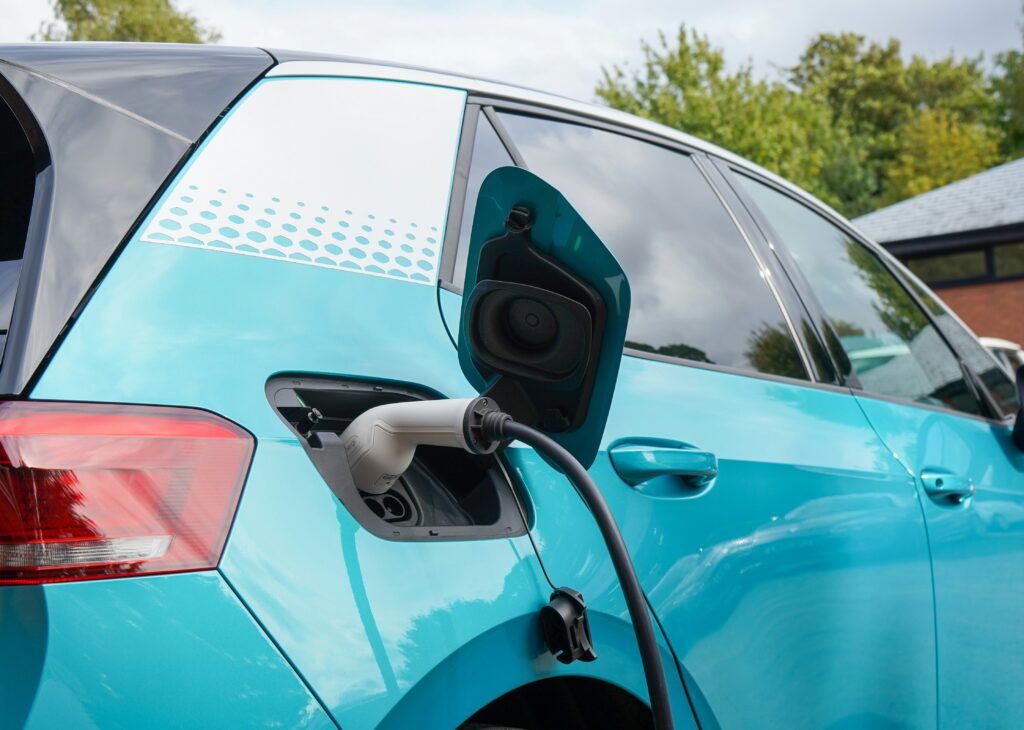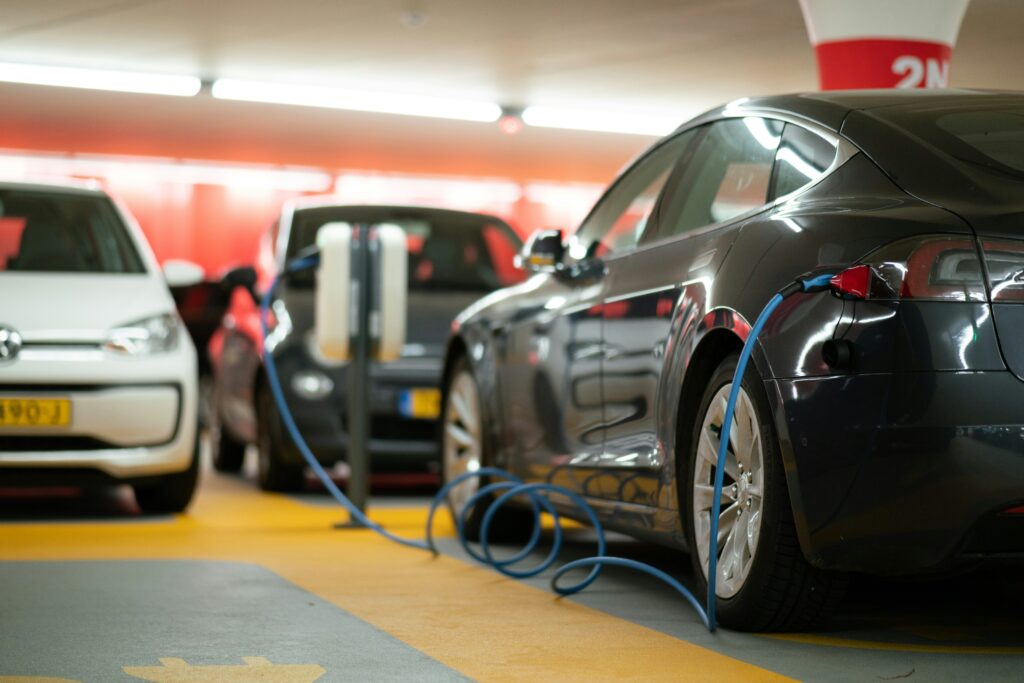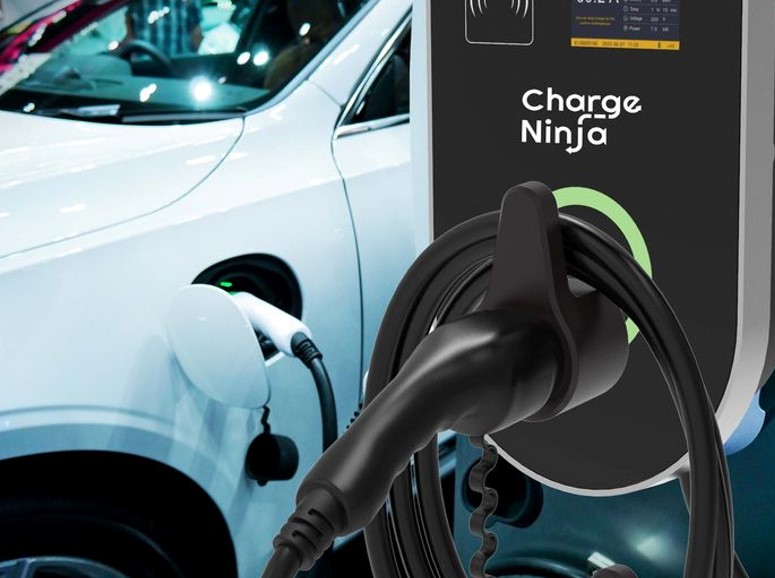Electrical vehicles (EVs) are becoming very popular these days for several reasons. With people becoming even more conscious about the environment and wanting a cheaper and cleaner option, EVs are considered the best choice over gas-powered vehicles.
As EVs become more prevalent, it is important to understand the difference between DC fast chargers and the regular AC slow chargers, not just for EV owners but for businesses alike.

Here is a breakdown to help you decide what's best for you:
DC (Direct Current) EV Chargers: designed for speed and power
A DC (direct current) charger is a high-speed charging station that utilizes high-power direct current electricity, with average power output between 20KW and 350KW and 15 to 19 minute charging time.
DC fast chargers provide significantly faster recharge times compared to ACs, offering key advantages in commercial and high-demand applications such as:
- Long-Distance Travel: DC chargers facilitate fast recharging to reduce travel time on highways and during road trips
- Urban Fleets: Rapid charging is ideal for taxis, delivery services, and ride-sharing services, minimizing downtime
- High-traffic areas: Great for reliable and efficient charging for high-volume locations such as shopping malls, transit hubs, and public spaces
- Industrial Sites: Supports large-scale EV deployments in industrial settings
- Industrial Sites: Supports large-scale EV deployments in industrial settings
Pros ✅
DC chargers can charge an EV to 80% capacity in just 30 minutes to an hour, making it an ideal option for those who need quick charging while on the go.
They also become more easily accessible with stations near highways and other popular travel routes.

Cons ❌
While DC charging offers lightning-fast charging speeds, it can also put a significant amount of stress on an EV’s battery, leading to reduced battery life over time. The elevated temperatures induced by the rapid charging can accelerate the battery degradation.
DC fast charging stations are also relatively expensive to install and maintain, thus using a DC charger costs higher than using an AC charging station.
AC (Alternating Current) EV Chargers: For Everyday Convenience
AC EV chargers are a great choice for everyday charging needs due to their practicality and cost-effectiveness. They are slower than DC fast chargers but they are perfectly suited for overnight charging or when the vehicle is parked for extended periods
Compared to DC fast chargers, AC EV chargers have slower charging speeds, usually up to 7 – 22kW. They are also cheaper and mostly available than DC chargers.
AC chargers are better for longer charging sessions, providing a gentle and convenient charging experience which makes them perfectly suited for:
- Homes and neighborhoods: Ideal for overnight charging, ensures your EV is fully charged and ready to hit the road
- Hotels and Retail Spaces: Offers convenient charging options for guests and customers, attracting more guests and encouraging repeat visits
- Public Charging Stations: Widely compatible with the use of standard AC power outlet, eliminating the need for specialized EV charging cables or adapters
- Workplaces: Suitable for workplaces where employees can leave their EVs plugged in during working hours
Pros ✅
AC EV chargers are easier to install, more cost-effective, and are an optimal solution for your EV’s battery life. Among many EV owners, AC charging has emerged as a practical and efficient choice, as they can also use existing residential circuits.
Cons ❌
While AC chargers might be convenient for overnight charging, it also poses several limitations. Extended charging times will be a challenge if you are always on the go.
Range is a significant drawback as well, as AC chargers provide a more limited charging range compared to DC’s. This can be problematic during a peak demand or in areas with limited infrastructure.
How to Choose Between DC and AC EV Chargers
Both chargers have their own pros and cons, but choosing what is best for you depends on where and when you mostly need it. To help you decide, here are some important factors you need to consider:
- Charging Times – Important to note that both EV chargers have different charging times: DC chargers are faster, AC chargers are slower. For everyday use, AC chargers are generally more ideal. However, for individuals who frequently travel long distances and require fast charging times, DC fast chargers might be a better option.
- Budget – Both chargers differ significantly when it comes to the cost of the equipment and installation. DC fast chargers require higher initial investment, while AC chargers generally offer more affordable options for initial investment and ongoing operational expenses.
- Battery Health – If you want your EV to have extended battery life, AC chargers are a perfect choice as they provide a gentler charging experience, reducing stress on the EV battery and promoting longer battery life. DC chargers, on the other hand, can potentially accelerate battery degradation due to elevated temperatures while charging, especially if used frequently.
Charge smarter for a greener future
Both DC and AC chargers play essential roles in the EV ecosystem. Your choice will depend on your lifestyle, driving habits, and charging needs.
If you’re looking to maintain the health of your EV battery or simply be able to recharge fast for your demanding travel schedule, Charge Ninja is here to empower your EV journey—whether you’re at home, on the road, or managing a fleet.
Let’s drive towards a sustainable future together!

What types of chargers are available for electric vehicles (EV)?
EV chargers have two types: AC (alternating current) and DC (direct current) chargers. Both can be available in different levels.
What are the benefits of EVs?
EVs are classified as zero emission vehicles as they produce no tailpipe emissions, reducing harmful pollutants into the atmosphere.
How long does it take to charge an EV?
EV charging time depends on the battery capacity and the speed of the charger.
What are the different charging levels?
EV charging has three levels: Level 1, 2, and 3. Level 3 chargers, also known as DC fast chargers, provide rapid charging speeds, while Level 2 chargers (AC) offer slower charging speed.
